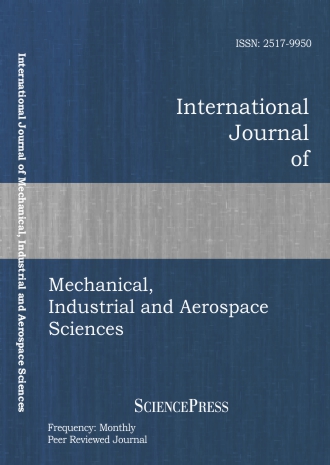
Scholarly
Volume:4, Issue: 12, 2010 Page No: 1343 - 1347
International Journal of Mechanical, Industrial and Aerospace Sciences
ISSN: 2517-9950
1590 Downloads
Optimum Working Fluid Selection for Automotive Cogeneration System
A co-generation system in automobile can improve thermal efficiency of vehicle in some degree. The waste heat from the engine exhaust and coolant is still attractive energy source that reaches around 60% of the total energy converted from fuel. To maximize the effectiveness of heat exchangers for recovering the waste heat, it is vital to select the most suitable working fluid for the system, not to mention that it is important to find the optimum design for the heat exchangers. The design of heat exchanger is out of scoop of this study; rather, the main focus has been on the right selection of working fluid for the co-generation system. Simulation study was carried out to find the most suitable working fluid that can allow the system to achieve the optimum efficiency in terms of the heat recovery rate and thermal efficiency.
Authors:
References:
[1] Richard Stobart and Rohitha Weerasinghe, "Heat Recovery and